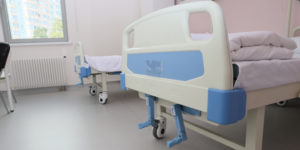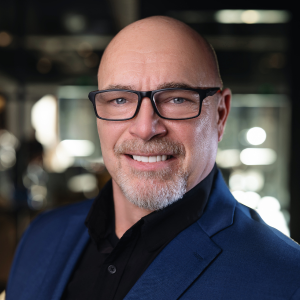Liability Landscape
| LIABILITY landscape BY LINDA WILLIAMS, RN Don’t overlook your residents’ oral health |
| According to the Surgeon General’s 2000 report on oral health in America, there is a connection between poor oral care/chronic oral infections and diabetes, heart disease, lung disease, pneumonia, stroke, and other health concerns primarily affecting the elderly. Unplanned weight loss also can be associated with oral health related to fractured or carious teeth, as well as poorly fitting or missing dentures. Unfortunately, seniors who live in nursing homes are at greater risk for oral health problems than those who live independently. Much of the resident care at nursing homes is medically centered, and sometimes oral health needs get overlooked. Facility workers may struggle with squeezing good oral hygiene into an already demanding routine. A lack of training for aides and resistance from some residents also contribute to inattention to oral hygiene. Additionally, facilities may have difficulty finding a dentist willing to service residents because of low Medicaid reimbursement and discomfort in seeing medically compromised residents. The importance of oral health is fundamental to a resident’s general health and quality of life. Caregivers need to be vigilant in assessing and providing for the oral health needs of their residents, to the extent that they are able. Families, in turn, also should be diligent in preserving their loved ones’ oral health. The following situation involves the tragic consequences that occurred when a man’s oral health needs were not met. Please take the time to review the circumstances surrounding the situation and make changes as appropriate in your facility. The Situation Four days after his admission, the man communicated to the nursing staff that he was choking. The nurse’s assessment revealed that his airway was clear, but he appeared anxious and had a very difficult time swallowing. In fact, his eyes watered heavily while swallowing. The nurse immediately notified his physician, who advised sending the man to an urgent care clinic. The social services director accompanied the man to the clinic with a transfer sheet stating his chief complaints were “choking, hard to swallow, becomes tearful.” At the clinic, the man told the physician that his neck hurt. However, the physician noted that the man was lying down with no acute distress. The physician’s exam revealed nothing out of the ordinary, except a neck deformity from a previous surgery and the fact that the man’s throat was red; it later tested positive for a yeast infection. The man was given an antifungal medication, told to drink only liquids, and was transferred back to the facility. Throughout that afternoon, the man continued to exhibit restless behavior by climbing in and out of his bed frequently. He refused to drink fluids and soon developed a congested cough. He told the next shift nurse that he was unable to “cough it up,” but didn’t expound further. The man’s family came to visit him and expressed concern for his health. As hours passed, the man’s heart rate and blood pressure began to rise, and his breath sounds diminished and oxygen saturation rate dropped to 86%. The nurse contacted his physician again and soon the resident was transported back to the clinic with a written history detailing his condition throughout the day. The same physician met the man at the clinic and sent him to the hospital for admittance. At the hospital, a chest x-ray was ordered and the hospital physician diagnosed the man as having lower lobe pneumonia, so he was placed in the ICU for further x-rays and evaluation. A week passed and the man’s condition worsened; an ENT consult was ordered. During laryngoscopy, the man’s upper denture was discovered lodged above his vocal folds. The surgeon immediately extricated the denture, but the man died of respiratory failure and aspiration pneumonia four days later. Two years passed before the facility received notification that it was being sued by the man’s family for his wrongful death. The hospital’s treating physicians and radiologist also were named on the lawsuit. As the suit progressed, virtually all of the plaintiff’s expert witnesses were critical only of the man’s hospital care, except one nurse who criticized the facility for failing to investigate and locate the man’s upper denture after he complained of choking. She also criticized the staff for failing to tell the physicians they had not removed or secured the man’s dentures. The facility’s response to the nurse’s criticisms was that the man was new and they were still getting to know his behaviors. It is quite common to have residents who choose not to wear dentures at all times, which is their choice. The man was cognizant and did not communicate to them that he had swallowed a foreign object. Furthermore, a visual inspection of his airway was conducted without any visible foreign objects noted. The lawsuit was eventually settled out of court, with the facility contributing a minimal amount to the final award. Risk-Management Steps to Protect Your Residents and Facility The following practical risk-management steps can assist your staff to protect your residents and facility from a similar situation: Ask the resident and responsible party for a dental history of problems, concerns, or special needs on admission. This information should be documented and care planned accordingly. Review and update the information according to the resident’s care plan schedule, or if any significant changes occur. Assess the condition of the resident’s mouth and gums. Document anything unusual, including signs and symptoms of gum disease. Seek appropriate dental services, as indicated. Signs and symptoms can include:
Evaluate the resident’s capability for performing daily oral care, such as brushing teeth or removal and cleaning of dentures, as part of the activities of daily living assessment. Document the level of care needed in the resident’s plan of care and update as indicated. Label toothbrushes and dental storage supplies, clean them daily, and replace them as needed. Mark dentures and similar appliances so that staff will know who they belong to if they are lost. Check these devices periodically to ensure the name is still legible and renew as necessary. Ask the resident or responsible party to choose a dentist who is able to provide dental care that meets the resident’s needs on admission. Encourage the resident to report any dental concerns, and assist with making appointments and arranging transportation to and from the dentist’s office, if services are not provided in the facility. Staff should make prompt arrangements for dental care if a resident loses or damages his/her dentures. Consider enlisting the services of a registered dental hygienist as an oral health liaison for your facility. Provide dental services to residents in accordance with professional standards of quality and timeliness. Any dental service that provides care to residents in the facility should provide the facility with proof of licensure and adequate insurance coverage. In addition, the dentist or agency providing dental services should render direct service to residents and act as a consultant to the facility on oral hygiene policies and procedures. Provide periodic in-service training for staff on proper oral hygiene. When needed, ask a dental service provider to instruct staff on how to adapt dental care equipment for residents with special needs. Train staff to be aware of behavioral changes that may indicate that a resident with dementia is experiencing dental problems. These may include:
Perform dental audits periodically to ensure that residents’ oral health needs are met and that proper documentation is in place as part of your facility’s Quality Assurance program. You can protect your residents’ oral health by making proactive and effective risk-management changes in your facility. Linda Williams, RN, is a Long-Term Care Risk Manager for the GuideOne Center for Risk Management’s Senior Living Communities Division. She previously served as Director of Nursing in a CCRC and as a nurse consultant for two corporations with numerous long-term care facilities in Iowa. The GuideOne Center for Risk Management is dedicated to helping churches, senior living communities, and schools/colleges safeguard their communities by providing practical and timely training and resources on safety, security, and risk-management issues. For more information, contact Williams at (877) 448-4331, ext. 5175, or slc@guideone.com, or visit www.guideonecenter.com. To send your comments to the author and editors, e-mail williams0406@nursinghomesmagazine.com. |
I Advance Senior Care is the industry-leading source for practical, in-depth, business-building, and resident care information for owners, executives, administrators, and directors of nursing at assisted living communities, skilled nursing facilities, post-acute facilities, and continuing care retirement communities. The I Advance Senior Care editorial team and industry experts provide market analysis, strategic direction, policy commentary, clinical best-practices, business management, and technology breakthroughs.
I Advance Senior Care is part of the Institute for the Advancement of Senior Care and published by Plain-English Health Care.
Related Articles
Topics: Articles , Risk Management











